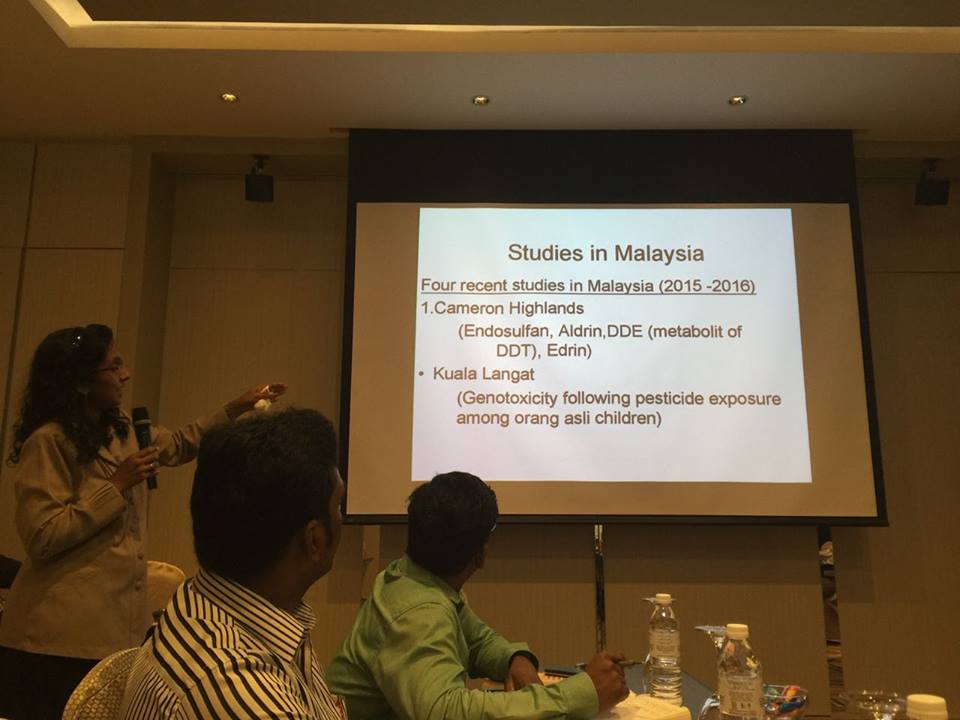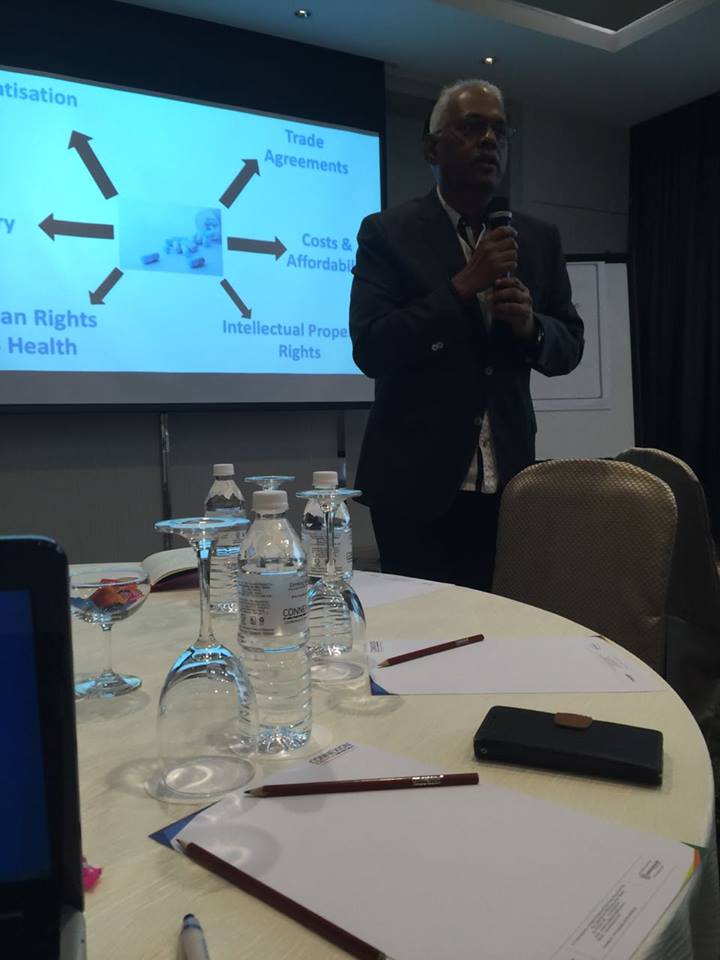Early December, PANAP and civil society organisations together with cancer survivors and patients among others, convened for a two-day roundtable discussion on Affordable Health Care to address the issue of rising costs due to a healthcare system which places a huge burden on patients and their families which was initiated by Klang MP Charles Santiago.
The treatment for breast cancer can cost up to a total RM395,000 for a single patient. Prof Dr Nirmala Bhoo-Pathy, a UM cancer epidemiologist has estimated on average the cost for breast cancer treatment can climb up to US$15,000 (approximately RM65,000) per year. This is a tough row to hoe for the patients who are already suffering.

Little attention has been given on how carcinogenic pesticides have been wreaking havoc on people’s lives. Thus, the roundtable session further reaffirmed PANAP’s advocacy on adopting the precautionary principle in the fight against the unbearable increasing medical cost.
Precautionary principle grounds on the basis that the introduction of a new product or process whose ultimate effects are disputed or unknown should be resisted. Given that pesticides pose a wide array of health complications and certain implications of the use are still unknown, it is best to eliminate the use of highly hazardous pesticides(HHPs) in the best interest of all.
Here are 5 facts about pesticides that you might have not been aware of:
1. HHPs have been found in the surface water of rivers and tap water in Cameron Highlands, Pahang, Malaysia. The pesticides are residues of endosulfan, edrine ketone, aldrin and DDE — a derivative of the dangerous DDT. They have been finding their way to our food and drinking water. What is more appalling is that some of these pesticides have been prohibited from use both locally and internationally.
2. These pesticides are not only probable human carcinogens (agents directly involved in causing cancer) but could also cause a host of other often deadly health implications on a person. HHPs can be indicated by high acute toxicity, long term toxic effects, and as endocrine disruptors. Children and women are often on the frontline of the harmful effects of pesticides because of their physiology and sociopolitical status. In a 2015 study in Malaysia, children (aged 10 and 11 years) exposed to organophosphates (OP) and carbamates near rice paddy fields had poor neurodevelopment. Children also had lower cholinesterase levels, a clear indicator of OP poisoning.
3. The use of pesticides are inevitably pushing us into economic hardship as medical costs continue to skyrocket especially for cancer treatments such as chemotherapy, biopsy and biomarker testing. Lindane, permethrin, cypermethrin and captan are chemical pesticides that increase the risk of breast cancer.

4. Corporations are not being held accountable for the suffering they have created.Critics point the finger at the inequitable Intellectual Property Rights (IPR) regime which unfairly turns the table, giving leverage to big pharmaceutical corporations at the merciless expense of working and middle class patients and families. Some corporations selling HHPs are also involved in selling pharmaceutical drugs. For instance, Zeneca Chemicals (a subsidiary of ICI Chemicals) earn millions from the sales of carcinogenic pesticides (e.g acetochlor) on one hand, and as Astra Zeneca, from the breast cancer treatment drug tamoxifen on the other hand.
5. Lax regulations surrounding the use of HHPs by governments have been exploited or continue to be exploited with ongoing trade deals such as TPP (formerly) and RCEP. In the pursuit of trade liberalisation the human cost have been sidelined in favour of economic gains. IPR are further lobbied by agrochemical companies to enhance corporate monopoly on GMOs such as hybrid rice seeds. These seeds rely on the use of pesticides such as glyphosate (aka Roundup in trades) which are probable carcinogens to humans as classified by the International Agency for Research on Cancer (IARC).
Therefore, PANAP strongly calls governments and corporations to take concrete steps towards a phase-out and ban of HHPs, as they have been identified as probable carcinogens and significantly play a role in causing cancer and eventually pushing many to the brink of suffering. PANAP also advocates for agroecology as the appropriate approach to replace the use of HHPs on farms and agricultural sites.
REFERENCES
1. Meriel Watts,2013, Breast Cancer, Pesticides and You!
2. PAN International Consolidated List Of Banned Pesticides
3. Is Your Medical Insurance Plan Sufficient For The Big C?
4. Children & Pesticides: Protect Our Children From Toxic Pesticides
5. Hashim,Z. & Baguma,B.2015. Environmental Exposure of Organophosphate
Pesticides Mixtures and Neurodevelopment of Primary School Children in Tanjung
Karang, Malaysia. Asia Pacific Environmental and Occupational Health
Journal,1(1):44-53,2015







Discussion about this post